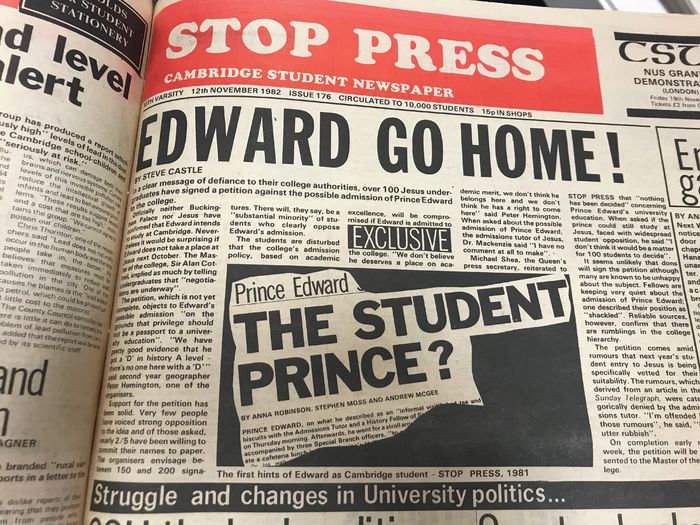Vintage Varsity: Cambridge’s ‘other’ boat club
Vintage Varsity explores the changing perception of CUBC’s women, from ‘Floaters’ to victorious boaters

Given their phenomenal seven year win streak, it’s strange to think that just 11 years ago Varsity joyfully reported on the admittance of Cambridge University’s women’s crew to row the same course as the men in the annual Oxford-Cambridge Boat Race. No more were women restricted to the 2km course at Henley, finally gaining the opportunity to prove themselves on the longer – and tougher – 6.8km course on the Thames tideway. The 2013 report acknowledged the challenges presented to these women but expressed hope that CUWBC had the dedication and support network necessary to prove themselves.
“Given the infamous sinking of the men’s boat in the 1978 Boat Race, this might be a hidden compliment for the women”
Although CUBC is a combined entity today, this was not the case in 1984, with Varsity going as far as to dub the women the “other” Cambridge crew. While “other” is kept in apostrophes, suggesting that the women’s categorisation as an inferior club was a popular conception and not the opinion of the article’s writer, the headline also snubs the women: they are “the Floaters”, not the rowers. Given the infamous sinking of the men’s boat in the 1978 Boat Race, this might be a hidden compliment for the women (at least they’re floating). However, it undermines the agency, dedication, and commitment of the women racers, who do far more than passively ‘float’.
Similarly, in 1960, Varsity reported on the poor performance of the men’s crews in May Bumps. The writer suggests they would be “[in]capable of winning the Grand at Henley” and should go for the Ladies Cup instead. Contrary to its name, the “Ladies” permitted both men and women to enter, so long as the men were not “good enough” to qualify for the Grand. In 1846, the same year that the “Ladies” gained its name, the winner was First Trinity Boat Club; with the dominance of (then) male-only colleges like Trinity, it is safe to assume that this “Ladies Cup” was synonymous with lesser-quality rowing and not a rare opportunity for crews like Newnham and Girton to prove themselves against other women’s crews.
Still, despite all these challenges – from financial constraints to unfavourable nicknames and even heckling on the towpath– Cambridge University’s women have more than proved 2013 Varsity’s hopeful predictions that they have what it takes to tackle the same challenges as the men.
 News / Suella Braverman visits Cambridge encampments16 May 2024
News / Suella Braverman visits Cambridge encampments16 May 2024 News / PG president begins hunger strike over SU failings17 May 2024
News / PG president begins hunger strike over SU failings17 May 2024 Features / From suits to sweatshirts: how formal traditions at Cambridge are changing18 May 2024
Features / From suits to sweatshirts: how formal traditions at Cambridge are changing18 May 2024 News / Activists dismantle Senate House encampment as University agrees to negotiations17 May 2024
News / Activists dismantle Senate House encampment as University agrees to negotiations17 May 2024 Comment / Messy rooms or messed up priorities?15 May 2024
Comment / Messy rooms or messed up priorities?15 May 2024






